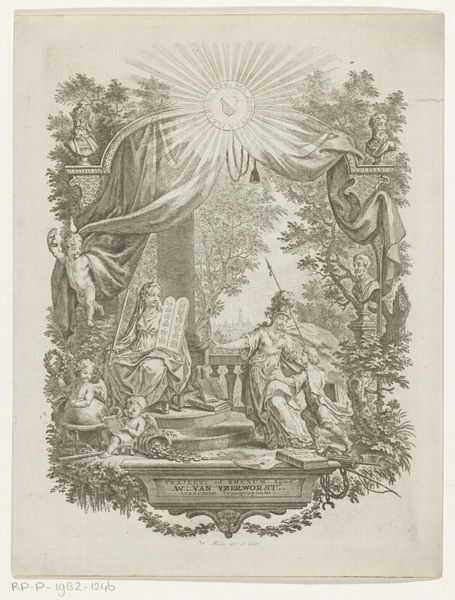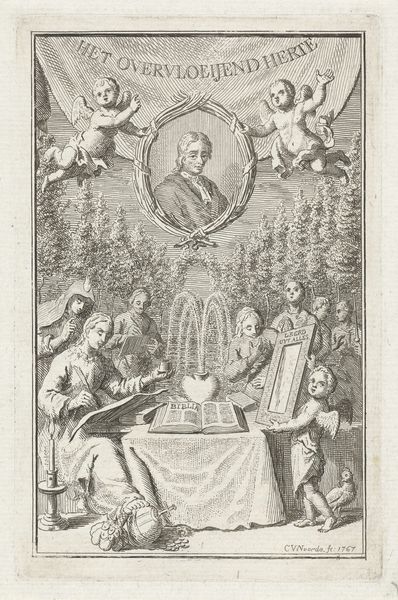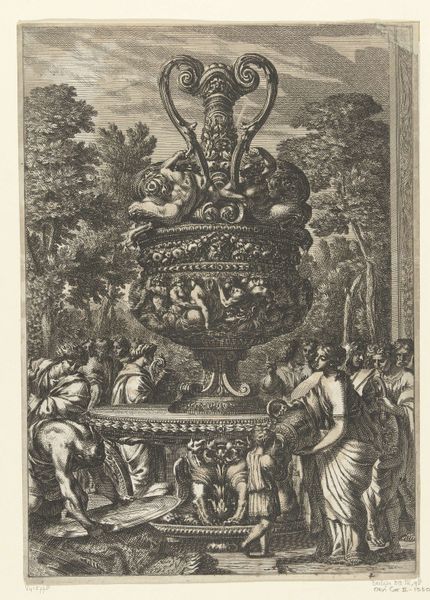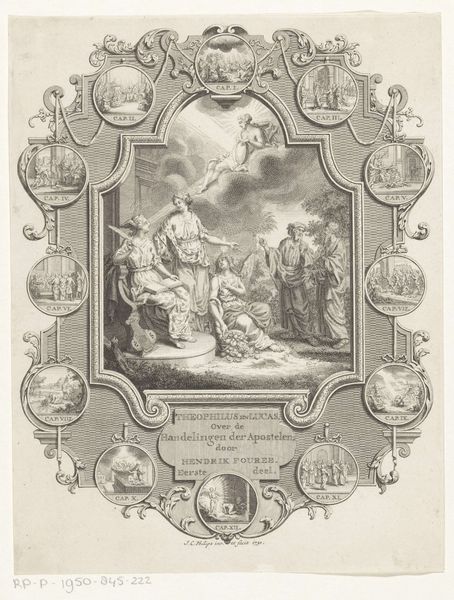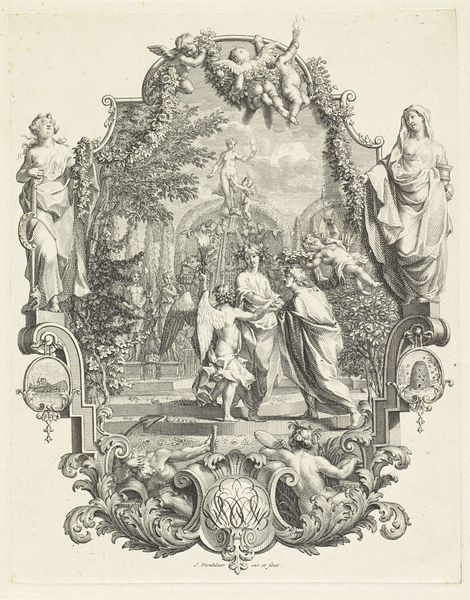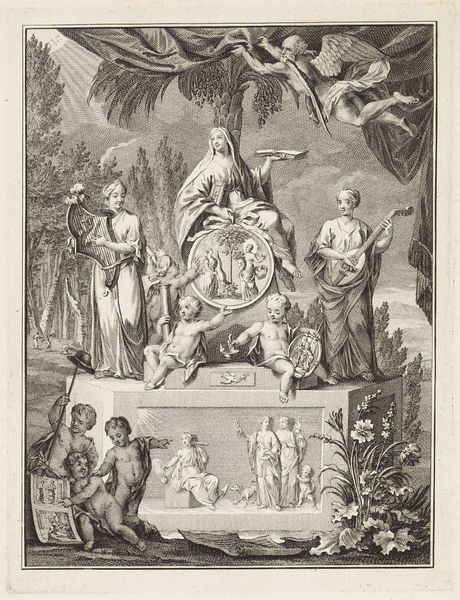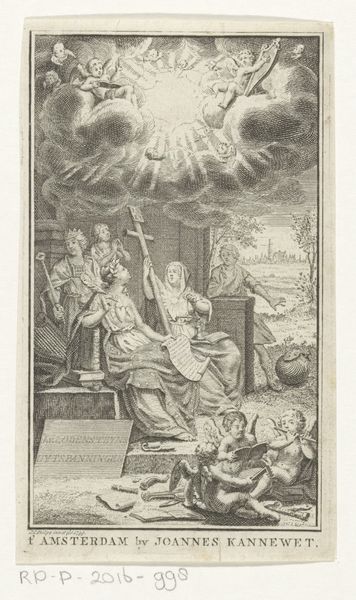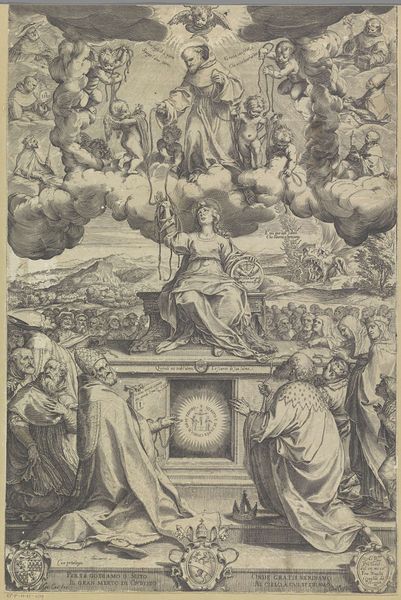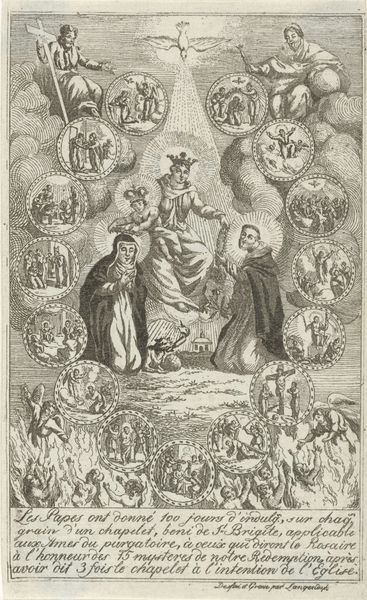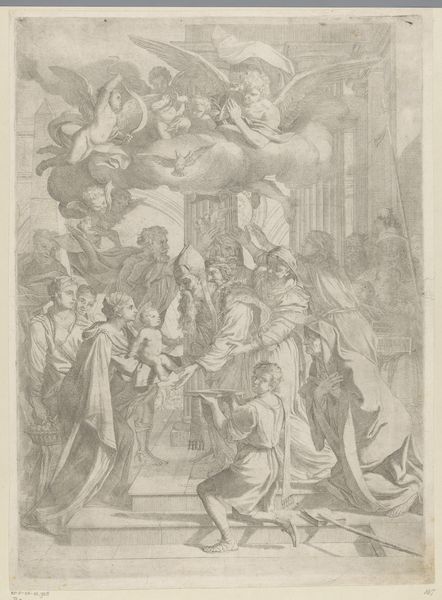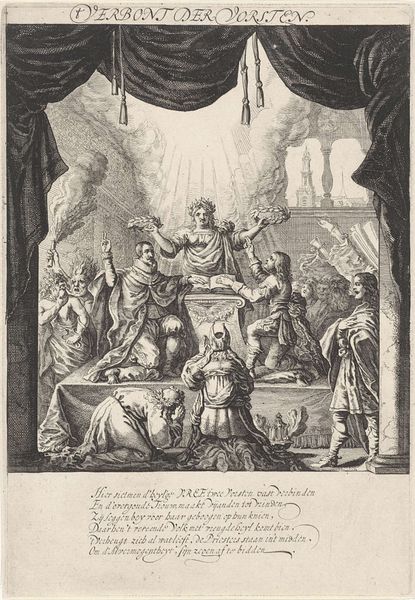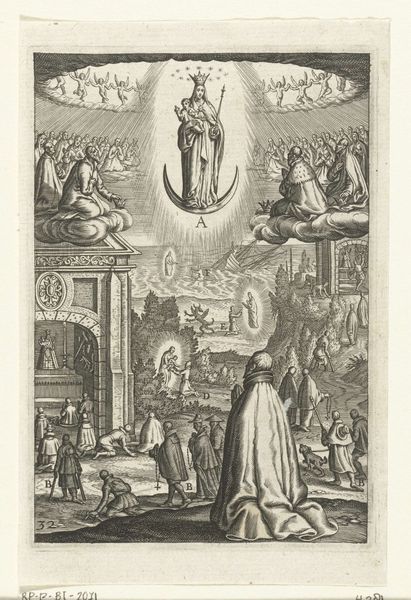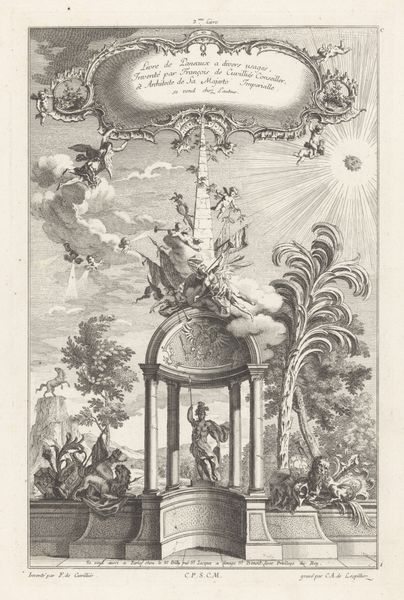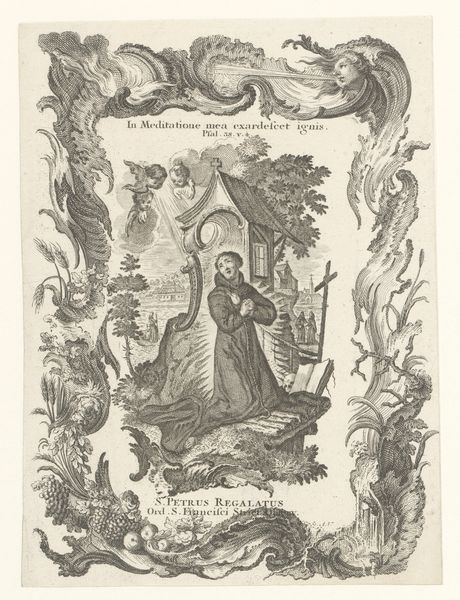
Dimensions: height 230 mm, width 173 mm
Copyright: Rijks Museum: Open Domain
This print, "Minerva ontvangt een jongeman," was created by Simon Fokke in the 18th century, using the technique of etching. Fokke’s image is all about line. Notice how the density of marks creates different shades, suggesting three-dimensionality on a flat plane. The printmaking process begins with a metal plate covered in a waxy, acid-resistant ground. The artist then scratches through this ground with a sharp needle, exposing the metal. When the plate is submerged in acid, the exposed lines are eaten away, creating grooves. Ink is then applied to the plate, filling these grooves. Finally, the plate is pressed onto paper, transferring the image. Consider the labour involved, the multiple stages of production, and the social context: printmaking allowed for the mass production and distribution of images, democratizing art and ideas in a way previously impossible. By understanding the material process of etching, we can better appreciate the social and cultural impact of Fokke’s work. It also invites us to question the traditional hierarchy between art and craft.
Comments
No comments
Be the first to comment and join the conversation on the ultimate creative platform.
